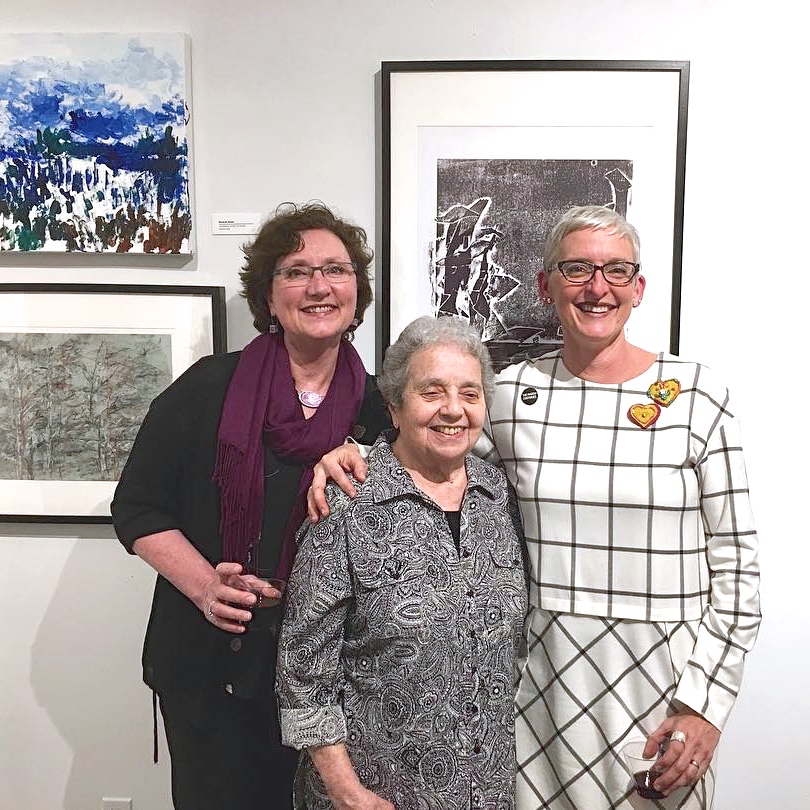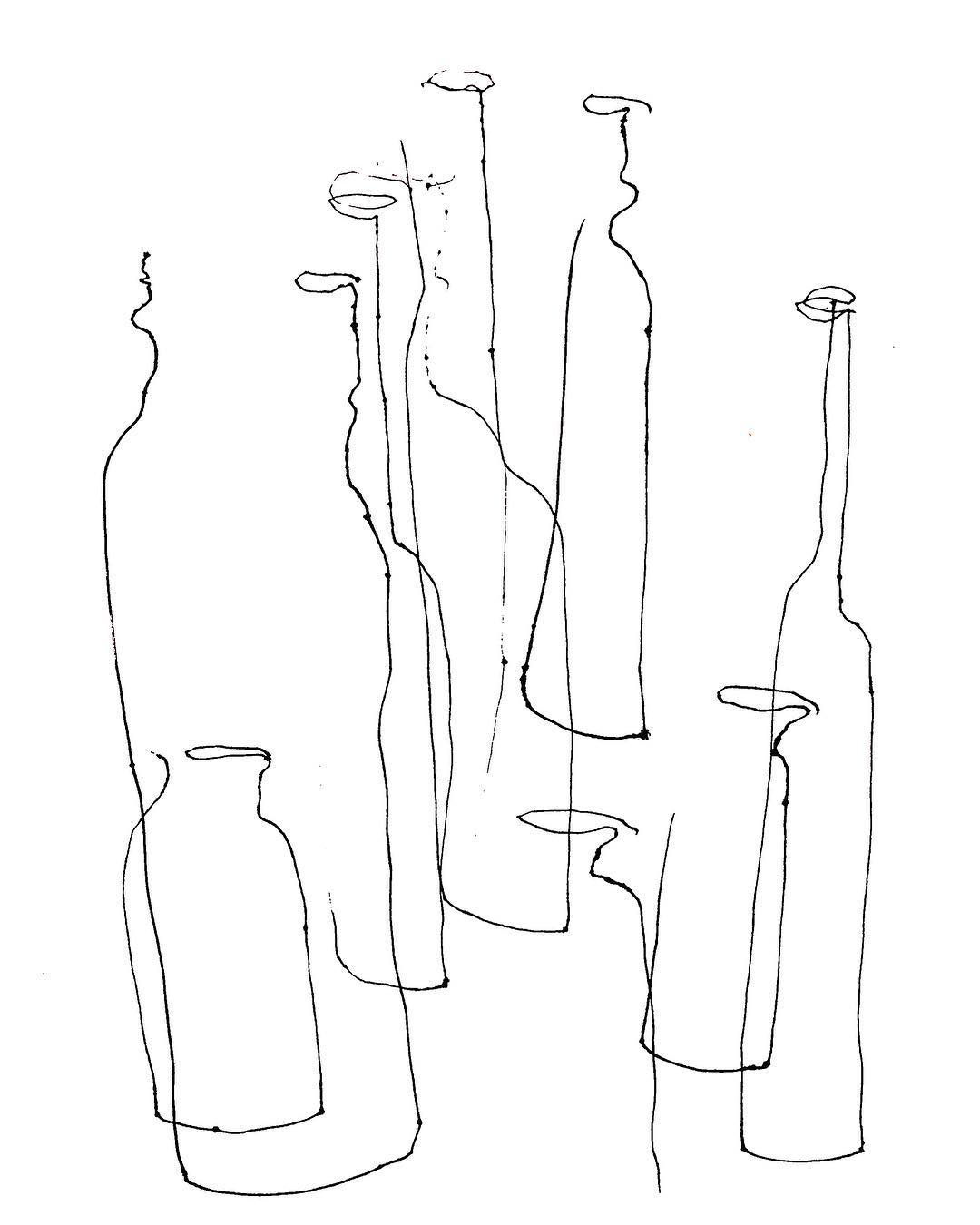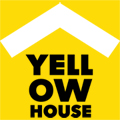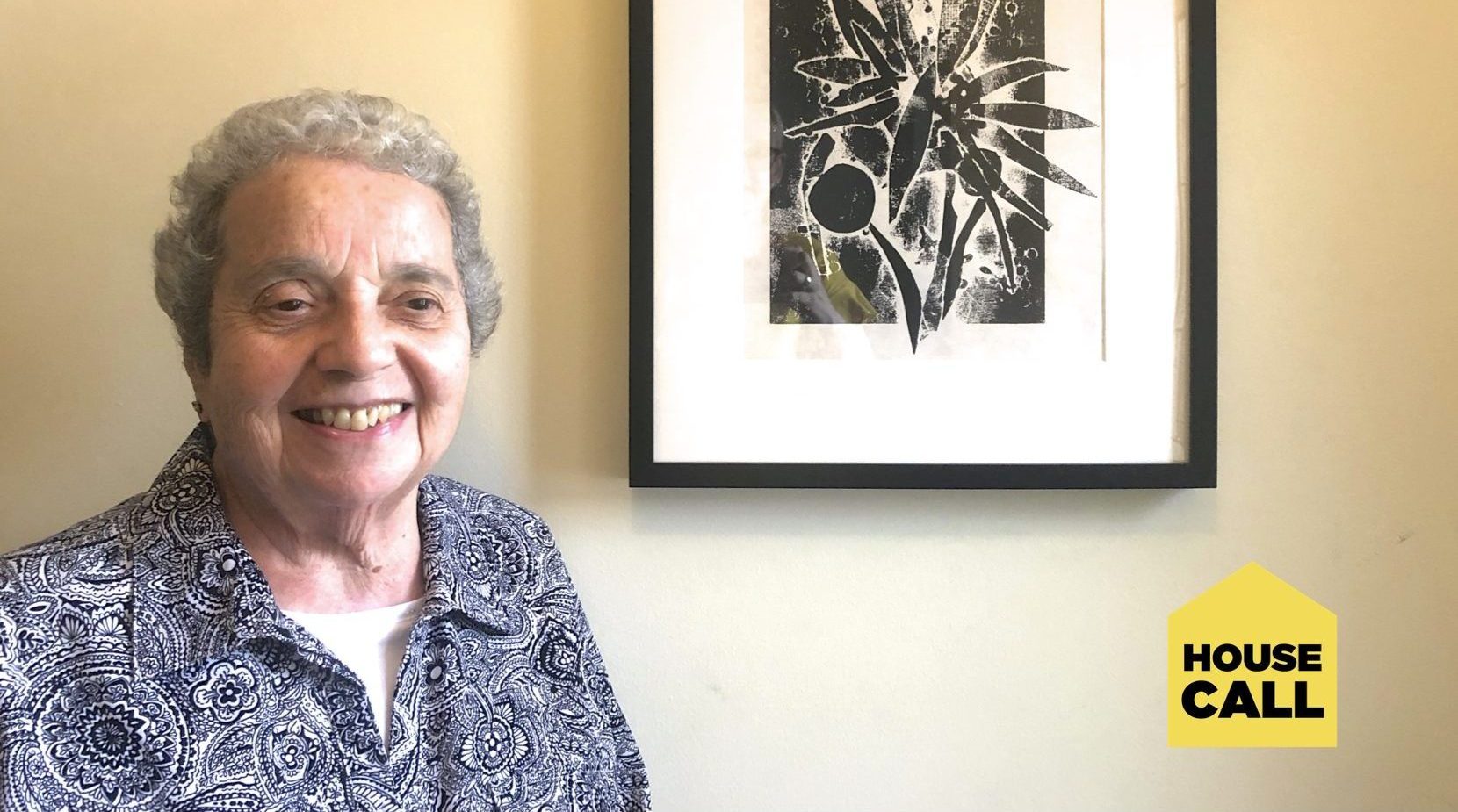We are continuing our HOUSE CALL series by checking in with visual artist, writer, educator, counselor, and activist Sister Elizabeth Fiorite as she shelters in place with her fellow Dominican Sisters Maureen and Beverly in their Jacksonville home. When I asked her how she identifies herself to others she answered, in part, “I am a Catholic Sister, but I don’t need to be called ‘Sister’ as long as you know that we are related, with every cell of creation, to Earth and one another. I am passionate about justice and my flawed Church, my (also flawed) family, my Sisters, and Italian food. My blindness is an integral part of me, and, though it is very inconvenient, it has also been a source of many blessings, in the form of countless friends and opportunities.’
 I have had the great pleasure of knowing this remarkable human being for 25 years, having first met when I was a Museum Educator at the Cummer Museum of Art & Gardens and Sister Elizabeth had founded the Women of Vision program, an initiative that centered art making, art appreciation, and writing for women who are blind or losing their sight. We have remained connected as we find each other regularly at civic actions, rallies, and protests for human rights and Yellow House has been honored to exhibit her art work in the (Re)Set the Table exhibition in 2019. As an elder, a woman of faith, a creator, an activist, and a friend I was especially eager to know how Sister Elizabeth was doing during this time of isolation, reflection, and change.
I have had the great pleasure of knowing this remarkable human being for 25 years, having first met when I was a Museum Educator at the Cummer Museum of Art & Gardens and Sister Elizabeth had founded the Women of Vision program, an initiative that centered art making, art appreciation, and writing for women who are blind or losing their sight. We have remained connected as we find each other regularly at civic actions, rallies, and protests for human rights and Yellow House has been honored to exhibit her art work in the (Re)Set the Table exhibition in 2019. As an elder, a woman of faith, a creator, an activist, and a friend I was especially eager to know how Sister Elizabeth was doing during this time of isolation, reflection, and change.
You do so much out in community, through your work as a counselor, as an artist, and as an advocate, I am sure this time has made a deep mark on you. How has the pandemic altered your daily routine?
Three Fridays of every month used to be designated for meetings with others who are visually impaired. I miss the interaction with them, though we are meeting via phone connections. So I am still connecting with three or four other people every day, but I now find it, by turns, energizing or enervating. Often, I find myself at a loss for words, which I guess can be construed as a mark of a good listener. I can’t be a Pollyanna and give cheery platitudes. Sometimes I say, “I know,” when I really don’t. What can I truly know about someone else’s grief?
How has this time changed, informed, motivated, or hindered your activism?
I don’t think there has been an execution since we have been observing social isolation. Whenever there is an execution in Florida, an interfaith group of us meet in front of the Court House to carry placards which read “Why do we kill people who kill people to prove that killing people is wrong?” or something similar. Then we circle around a lit candle and pray for the killer and the killed, as well as their families. Perhaps the Governor will be distracted by the coronavirus and state murders will be curtailed.
My Sisters and I also belong to the Riverside Indivisible group, which now is meeting via Skype or Zoom. I am an active member of the Indivisible Project, which is a locally-led, people-powered movement of thousands of local groups in red, blue, and purple states, and in urban, suburban, and rural areas. Our mission is to power and lift up a grassroots movement of local groups to defeat the Trump agenda, elect progressive leaders, and realize bold progressive policies. So, we are still doing the work.
 In Martin Luther King Jr’s writings about Radical Love he spoke of the need for people to become active in healing our brokenness. Does that concept resonate with you? What role do you think artists and/or activists can or should play in ‘healing our brokenness’?
In Martin Luther King Jr’s writings about Radical Love he spoke of the need for people to become active in healing our brokenness. Does that concept resonate with you? What role do you think artists and/or activists can or should play in ‘healing our brokenness’?
Not knowing what to do, or maybe, not willing to do it, causes me to have feelings of guilt and shame and remorse. I want, and have, hot and cold running water, cool air in the summer and heat in the winter. I have access to nutritious and tasty food. I have enjoyed white privilege in the form of a good education, responsible and rewarding work, and opportunities for travel and to pursue interests. I continue to enjoy these privileges while knowing that these are possibilities for me at the expense of others who have never experienced one scintilla of what I have undeservedly had.
I went to jail in Mobile in the sixties and I don’t want to go again. I will march and take part in protests again, but maybe not if I know the dogs are there. So, I am not such an active activist any more. Writing letters to the editor and to our senators and Governor is necessary, so I can do that. My sphere of influence is limited, but anyone who knows me knows my position on justice matters. That is what I can and will continue to do.
What are you learning or experiencing now that you want to take with you into a new future?
I am living so much more in ‘nowness’. Some call it ‘in the moment’ and spiritual writers speak of liminal space, liminal from the Latin meaning ‘threshold’. The dark past is behind me, and the equally dark and uncertain future is before me and I stand in between. There is so much loss of life due to the pandemic as well as to famine and war. There is so much greed and hate and brutality in the world. Will my poem or prayer or letter or other artistic endeavor lessen it? It is all I have. When this is over, will we see how we are all related, to Earth and one another, every cell of everything? Will we listen to each other’s songs and stories and cries? Will I recognize your wounds as mine? Will the tears of all the children and widows commingle and cleanse Earth?
Is there a work of art, in any form, that has inspired you during this time?
A Brave and Startling Truth
by Maya Angelou
We, this people, on a small and lonely planet
Traveling through casual space
Past aloof stars, across the way of indifferent suns
To a destination where all signs tell us
It is possible and imperative that we learn
A brave and startling truth
And when we come to it
To the day of peacemaking
When we release our fingers
From fists of hostility
And allow the pure air to cool our palms
***
We, this people, on this small and drifting planet
Whose hands can strike with such abandon
That in a twinkling, life is sapped from the living
Yet those same hands can touch with such healing, irresistible tenderness
That the haughty neck is happy to bow
And the proud back is glad to bend
Out of such chaos, of such contradiction
We learn that we are neither devils nor divines
When we come to it
We, this people, on this wayward, floating body
Created on this earth, of this earth
Have the power to fashion for this earth
A climate where every man and every woman
Can live freely without sanctimonious piety
Without crippling fear
When we come to it
We must confess that we are the possible
We are the miraculous, the true wonder of this world
That is when, and only when
We come to it.
——————–
Sister Elizabeth Fiorite
She/her/hers
Dominican Sister of Sinsinawa, Wisconsin for 66years. Educator of children and adults. A woman who lost her sight in 1990. Retired Social Services Counselor. Artist. Activist. Writer.
Sister Elizabeth is not on social media, but you can find her editorials regularly in the Times Union and read a sample of her poetry here and additional writings here
——————–
About the HOUSE CALL Series
Yellow House is checking in with the artists, writers, performers, and activists who have filled our space with their works and voices. During a time of crisis, creatives are faced with the same challenges, anxieties, and opportunities as most of us, yet they can offer unique perspectives on how to adjust, evolve, and understand. As observers and empaths, they can help us see ourselves and the world around us more fully. And in all honesty, I just wanted to know how our people are doing during this time of threat from virus, social distancing, continued work, and adaptation. One aspect of community care is to check in our neighbors and we are doing it the way we know how, through a series of intimate glimpses into lives authentically shared.
Interviewed by Hope McMath


